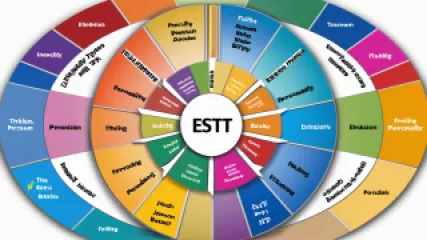Uordnet Spisning
Developing Healthy Eating Habits: A Step-by-Step Guide
Introduction
Developing healthy eating habits is essential for maintaining our overall well-being. However, for individuals struggling with disordered eating, this process can be particularly challenging. Disordered eating refers to a range of irregular eating behaviors and unhealthy relationships with food. It can include disorders such as anorexia nervosa, bulimia nervosa, binge eating disorder, and emotional eating.
If you or someone you know is dealing with disordered eating, it is crucial to seek support and guidance. Eating disorder counseling and therapy for eating disorders can provide the necessary tools and strategies to overcome these challenges. In this step-by-step guide, we will explore various techniques and practices that can help individuals develop healthy eating habits and heal from disordered eating.
Step 1: Seek Professional Help
The first step in addressing disordered eating is to seek professional help. Eating disorder counseling and therapy provide a safe and supportive environment to explore the underlying causes of disordered eating and develop effective coping mechanisms. A qualified therapist can guide you through the recovery process, offering personalized strategies tailored to your specific needs.
Step 2: Identify Triggers and Patterns
Understanding the triggers and patterns associated with disordered eating is essential for developing healthier habits. Take some time to reflect on your eating behaviors and identify any emotional, social, or environmental factors that contribute to unhealthy eating patterns. Keep a journal to track your thoughts, feelings, and behaviors around food. This self-awareness can serve as a foundation for change.
Step 3: Establish Regular Meal Patterns
Establishing regular meal patterns is a crucial step in developing healthier eating habits. Aim to eat three balanced meals per day, spaced evenly throughout the day. Avoid skipping meals or restricting yourself excessively, as these behaviors can trigger disordered eating patterns. Additionally, try to include a variety of nutrient-dense foods in your meals, including fruits, vegetables, whole grains, lean proteins, and healthy fats.
Step 4: Practice Mindful Eating
Mindful eating is a powerful tool for developing healthier eating habits. It involves paying attention to your body's hunger and fullness cues, as well as savoring and enjoying the flavors and textures of your food. Slow down during meals, chew your food thoroughly, and try to eat without distractions like screens or books. By practicing mindful eating, you can develop a more positive and balanced relationship with food.
Step 5: Challenge Negative Thoughts and Beliefs
Disordered eating often stems from negative thoughts and beliefs about food, body image, and self-worth. Challenge these negative thoughts by replacing them with more positive and realistic ones. Surround yourself with supportive people who promote body positivity and self-acceptance. Engage in activities that boost your self-esteem and focus on your strengths and qualities beyond physical appearance.
Step 6: Build a Support Network
Building a support network is crucial for individuals overcoming disordered eating. Seek out friends, family members, or support groups who understand and empathize with your struggles. Share your journey with trusted individuals who can provide encouragement and accountability. Remember, you don't have to go through this alone.
Step 7: Practice Self-Care
Self-care plays a vital role in healing disordered eating and developing healthy habits. Engage in activities that bring you joy, reduce stress, and promote self-compassion. This could include exercise, hobbies, spending time in nature, practicing mindfulness or meditation, or seeking professional help for any underlying mental health concerns. Prioritize self-care as an integral part of your overall wellness journey.
Step 8: Focus on Progress, Not Perfection
Recovering from disordered eating takes time and patience. Remember that progress is not linear, and setbacks may occur along the way. Instead of striving for perfection, focus on small, achievable goals and celebrate each step forward. Be kind to yourself and acknowledge that healing is a gradual process.
Conclusion
Developing healthy eating habits and healing from disordered eating is a journey that requires commitment, support, and self-compassion. By seeking professional help, identifying triggers and patterns, establishing regular meal patterns, practicing mindful eating, challenging negative thoughts, building a support network, practicing self-care, and focusing on progress rather than perfection, individuals can overcome disordered eating and cultivate a healthier relationship with food. Remember, you are not alone, and there is hope for a brighter, healthier future.















